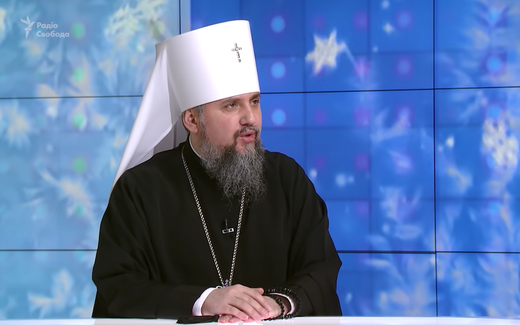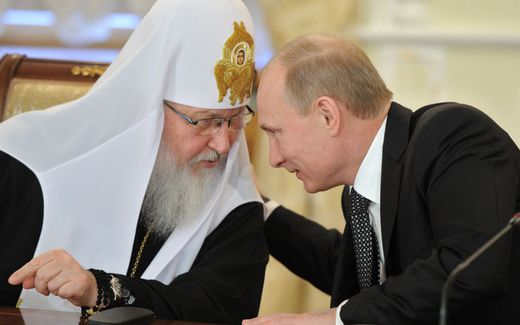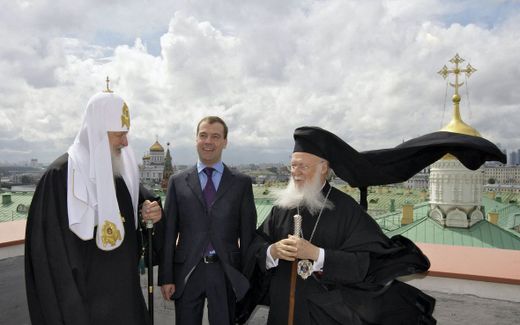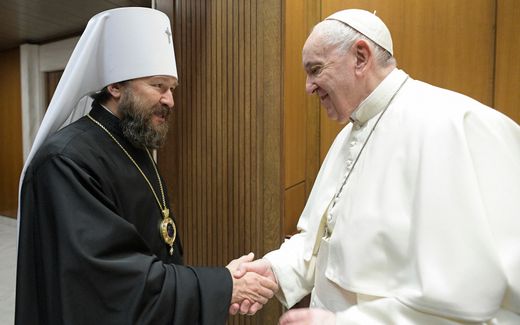How long will Ukraine have Christmas on January 7th?
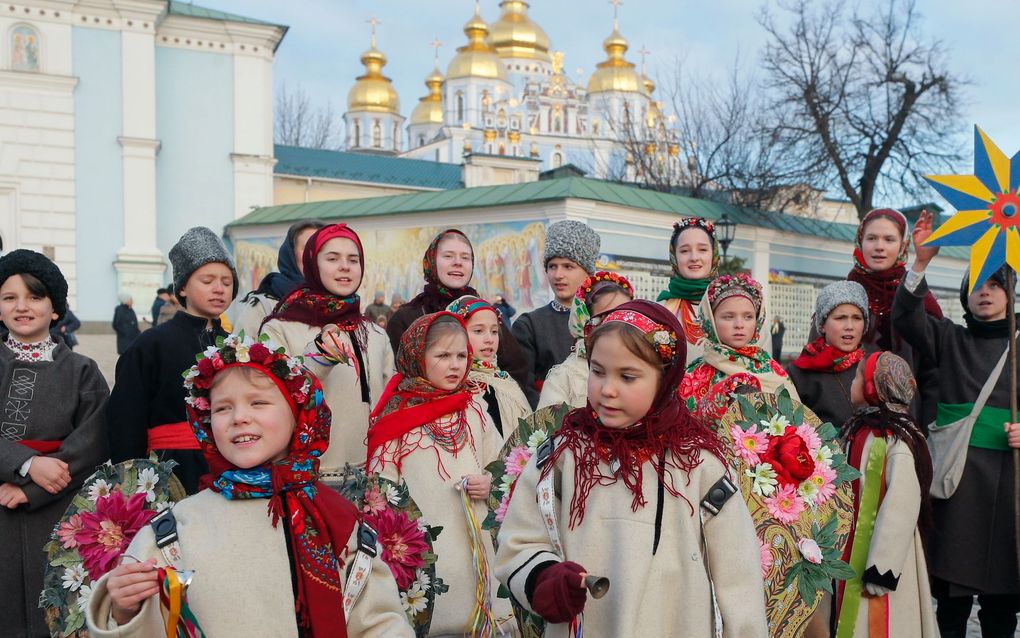
Ukrainian kids are celebrating Christmas on January 7th. Photo EPA, Sergey Dolzhenko
Eastern Europe
Today, the four weeks of Nativity fasting will end as the first star is in the sky. And then tomorrow, January 7th will be Christmas for the Orthodox Churches in the East of Europe. But in Ukraine, a part of the church is pleading for changing to December 25th.
The Western church had Christmas already on December 25th. This difference in dates has to do with another calendar. The East uses the Julian calendar, the West the Gregorian. The Western calendar is 13 days ahead of the Julian. The history of this is so long and complicated, as Ria Novosti shows again, that it is not to be expected that this will change soon.
The (Western) Roman Catholic Church will have the feast of the Baptism of Jesus (Theophany) on January 7th. Some sources say that birth and baptism were initially celebrated on the same day.
Two church families went their own way
After the Great Schism in the year 1054, the two church families went their own way. In the West, the feast of the Nativity (Christmas) became the most important. In the East, this happened with the feast of the Resurrection (Easter), as Orthodox Christianity explains.
Tonight, as soon as the first star appears, everybody knows that the Christmas Eve service starts. That means you can go to the “temple” or stay at home and have your own liturgy. This all comes from the old times without watches. Other sources see in this star a representation of the Biblical star of Bethlehem.
Christmas takes one day, January 7th. But the so-to-say “Christmas season” will remain until the 19th. In the coming 12 days, the nativity of Christ is hymned in the church.
Ukraine a region, no country
In most countries, it is no question what date Christmas is celebrated. It is either December 25th or January 7th. But the question arises in ‘border’ countries where the Western and Eastern traditions meet (and even overlap). In Poland and the Czech Republic, the Orthodox Churches will celebrate Christmas on a different day as the Roman Catholics.
Ukraine is such a border country growingly. Traditionally, this was the country where the cradle of the Russian culture stood. The Russian nation was born in Kiev and in Crimea, not in Moscow or St. Petersburg.
But 30 years ago, in 1991, this country became independent. That independence was signed for by Russia, the USA and other nuclear powers in the Memorandum of Budapest in December 1994. But clearly, Russians like President Putin never really accepted this. At the NATO Summit in 2008 in Bucharest, he shocked some colleagues by saying that Ukraine was not a country but a region in the Russian Federation.
Western influence strong
But in Ukraine itself, the Western influence has been robust since 1991. The current President Zelensky is even in favour of NATO membership. The many Protestant churches in Ukraine and the Roman Catholic Church have Christmas already in December.
In that context, it is no surprise that the leader of the Kiev Patriarchate, Metropolitan Epiphanius, is pleading for a change of the Christmas date. Three weeks ago, he said in a TV interview that he would favour Christmas on December 25th. That was clearly a choice for a more Western style.
Opinion research shows that only a quarter (26 per cent) of the population is supporting a change, as reported by Religion in Ukraine. A majority (58 per cent) is against. Seven out of ten Ukrainians (71 per cent) are celebrating Christmas in January; only 4 per cent in December. Oddly enough, 18 per cent has Christmas twice. Only 6 per cent does not celebrate Christmas at all.
Poll suits Moscow
The opinion poll results fit in the agenda of that part of the Ukrainian church that is faithful to Moscow. Therefore, the church was eager to publish this news on her own website.
At the moment, the Ukrainian Orthodox Church is split into two. One part sticks to the old situation under the Moscow Patriarchate (MP). Still, another part chooses the new, autonomous church under the Kiev Patriarchate (KP). According to the KP leader, Metropolitan Epiphanius, about 700 parishes chose Kiev, as LB.ua reports. That is about 10 per cent of the total of 7,000 parishes.
Related Articles


